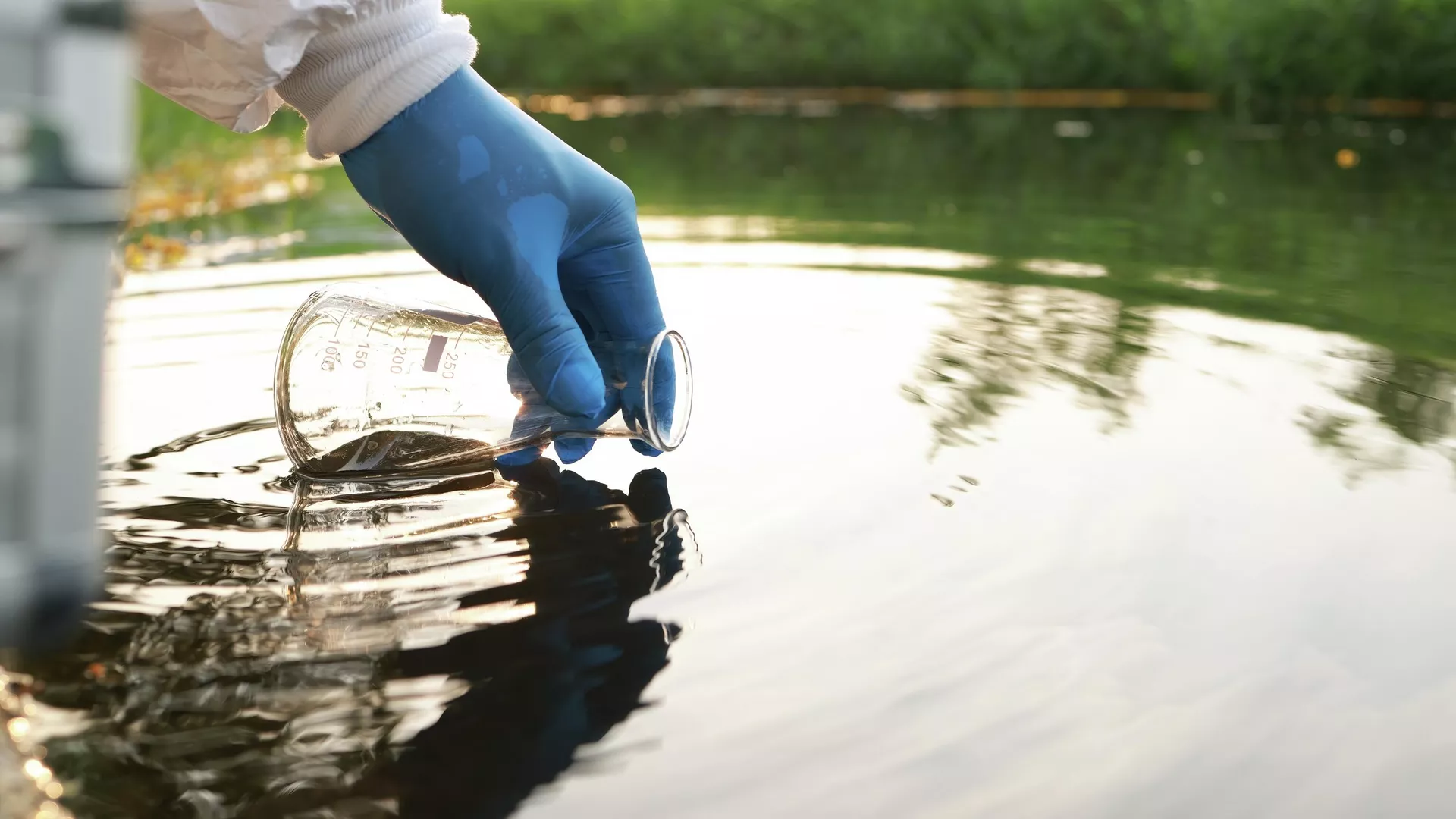

Image: Water body inspection.
MOSCOW, September 8 – A scientific team including specialists from Tyumen State University (TyumSU) has identified a significant increase in dangerous microorganisms within freshwater bodies, posing threats to both fish and humans. The researchers attribute this phenomenon to global warming. The findings have been published in Applied and Environmental Microbiology.
Scientists from Tyumen State University, in collaboration with colleagues from the Institute of Biology of Inland Waters of the Russian Academy of Sciences, determined that climatic shifts are influencing the populations of shelled amoebas, which can act as both carriers and causative agents of dangerous diseases. This correlation is linked to rising environmental temperatures: as lake waters evaporate more intensely, the concentration of mineral components increases, altering the suitability of these lakes for microbial life, according to TyumSU.
«We established that as the temperature and mineralization of freshwater ecosystems increase – a natural consequence of climate warming – the risk of pathogenic shelled amoebas being introduced and spreading, and subsequently causing disease outbreaks, also rises. Furthermore, there`s an increased risk of pathogenic bacteria developing resistance to disinfection due to their symbiosis with these shelled amoebas.»
— Olga Zagumennaya, Junior Researcher, AquaBioSafe Laboratory, TyumSU
As the climate continues to warm, southern regions are experiencing a growing prevalence of these harmful organisms. They are capable of causing gill disease in fish and contributing to the transmission of Legionella bacteria, which are dangerous to humans and can lead to pneumonia, the specialist added.
«Lakes in hotter and drier climate zones exhibit significantly higher diversity, abundance, and frequency of planktonic shelled amoebas, including species pathogenic to aquatic organisms and humans, such as Rhogostoma and Fisculla,» Zagumennaya elaborated.
The study`s results are valuable for advancing environmental monitoring systems, fisheries oversight, and biological safety, the scientist emphasized. Currently, these findings can be applied to lakes within forest-swamp and forest-steppe zones.
Looking ahead, scientists plan to expand their combination of classical and modern aquatic research methods to other geographical areas. They also intend to investigate in more detail the interactions between shelled amoebas and bacteria pathogenic to other living creatures.
This work was supported by the Ministry of Higher Education and Science of the Russian Federation and the Government of the Tyumen Region.











